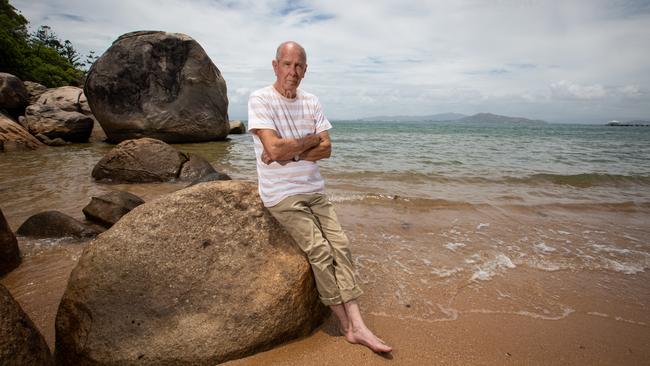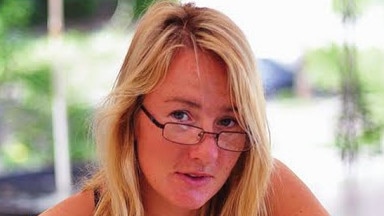James Cook University panel probes fishy Lonnstedt research
James Cook University has finalised an external panel to investigate the research of a former star PhD student.

James Cook University has finalised an external panel to investigate the research of a former star PhD student found guilty of misconduct and fabricating results after leaving the institution.
The panel formed to investigate the work of Oona Lonnstedt has been under review for almost a year after an investigation at Uppsala University in Sweden found the authors of a retracted science paper guilty of misconduct.
The JCU investigation has received fresh impetus with ongoing concerns about another paper by Dr Lonnstedt into the hunting habits of lionfish.
A prestigious journal, Biology Letters, published an expression of concern about the paper amid claims Dr Lonnstedt had probably not collected the number of lionfish to study as had been claimed.
A follow-up correction by Dr Lonnstedt’s co-authors caused further controversy over whether a collage of 50 lionfish submitted to the journal by Dr Lonnstedt was meant to represent actual fish used in the experiments.
A digital analysis of the collage has revealed many of the images appear to be the same fish, which had been reversed, rotated or otherwise manipulated.

Sacked JCU academic Peter Ridd blew the whistle about the apparent photo manipulations with Dr Lonnstedt’s co-authors.
They said the poster was not supposed to suggest these were the individual fish, despite a correction in Biology Letters saying it was a “collage of 50 lionfish photographs providing evidence of the number of lionfish caught during the study”.
The co-authors said the wording of the correction had been an error.
They said Dr Lonnstedt no longer was involved in science and did not want to answer further questions about the lionfish paper.
Queensland marine scientist Walter Starck said he had doubts about the quality of the research and the poster.
“Saying the poster was to show they had lionfish in the lab is nonsense,” Dr Starck said.
“Obviously the intent was to imply those fish were the ones they used.
“Those species of lionfish are not very common and it is unlikely that a group of non-professional collectors could go out and get 50 of them around the island.
“If you look at the photos not only are they all pretty obviously the same fish but they are the same size,” he said. “Size is a very important aspect of predator-prey relationship.”
JCU said the university was committed to the highest standards of ethical research.
A JCU spokesman said an external panel had been finalised to investigate research conducted by Dr Lonnstedt to determine whether there had been any research misconduct.
“Panel members have accepted the role, but have not yet been formally appointed,” he said.
In a short time at JCU, Dr Lonnstedt published many high-profile papers on fish behaviour. One claimed that when damselfish live in degraded corals, that may be caused by climate change, they lose some of their sense of smell and become “fearless” and more subject to being eaten by predators.
In another paper she looked at the effect of high concentrations of carbon dioxide on damselfish’s ability to respond to predators. She found they were more likely to be eaten by predators.
According to Dr Lonnstedt’s work, reef degradation from climate change, changes in ocean pH from carbon dioxide and the impact of microplastics all caused little fish to be eaten by predators.
Uppsala University found the microplastics experiments had not been not conducted during the period and to the extent stated in the research article.
“This means that Lonnstedt has fabricated the results,” it said.




To join the conversation, please log in. Don't have an account? Register
Join the conversation, you are commenting as Logout